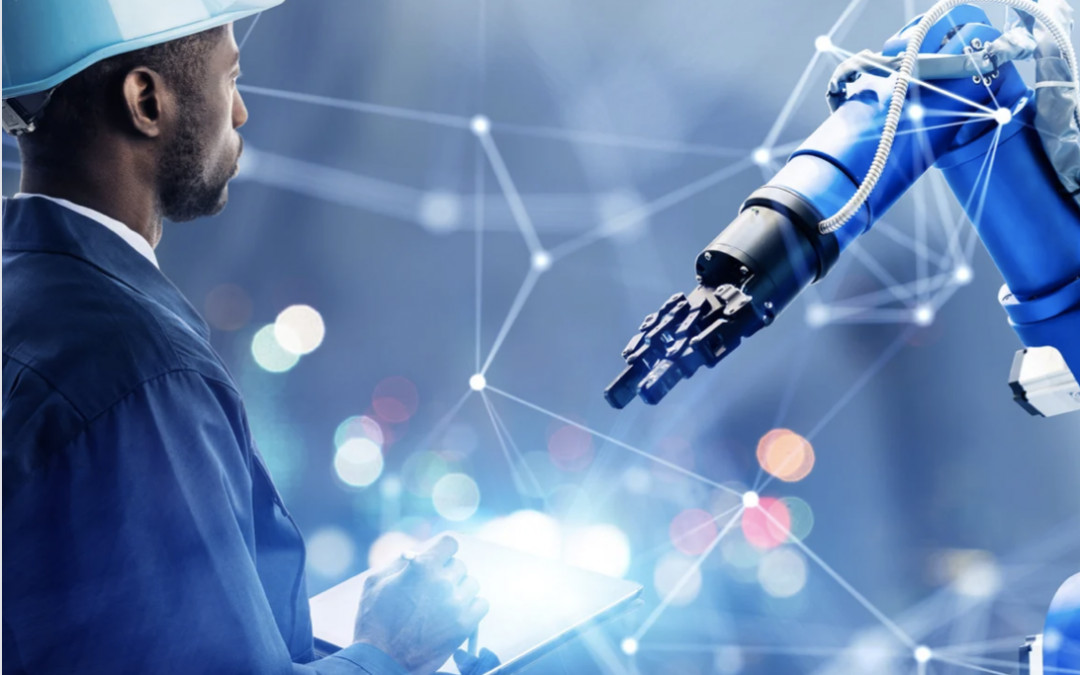This article is part of an ongoing series on the uses for artificial intelligence (AI) in manufacturing, starting with our article introducing machine learning and AI, and their relevance to manufacturing and supply chain operations.
In this piece, we will cover the evolving role that AI is playing in shaping one of the more human-involved aspects of manufacturing, which is workplace training. Training is especially important in manufacturing, where there is an embarrassment of risks that the employer and employee alike need to be wary of, as well as a number of skills and tasks that are hard to learn on the fly without proper preliminary training.
By Failing to Prepare, You are Preparing to Fail
Almost 60% of employees claim that they received no workplace training at their place of employment, and that much of their relevant skills were self-taught, learned on the fly.
Contrast that with the roughly 75% of workers who say that they are open to training and learning new skills that can increase their efficiency in the workplace.
Employers that do not invest in workplace training and skill-building programs tend to face higher turnover, and lower satisfaction among
Compared to other industries, manufacturing has an above average focus on workplace training, partly because it can be so dangerous for employees, whether they are working on the factory floor, the warehouse, or transporting the final products in a large and unwieldy semi-truck.
To skimp on training programs on manufacturing brings the risk of more than just employee turnover, but injury and, in some cases, even death. An abundance of lawsuits and worker’s comp payouts follow.
Worker’s comp worries aside, manufacturers realize that it takes more than just a great accident insurance plan to mitigate these risks. What is needed is a great training program that can prepare employees for the worst.
Recently, artificial intelligence has come to play a large role in improving workplace training across all industries, and manufacturing is no exception.
AI Creates Better Workers
The common myth is that AI exists to replace workers, but the truth is that the function of many AI agents is to assist current employees and create an overall more efficient workplace.
Whether you are training new employees or seeking to upskill current employees, AI can optimize the process, making it easier and more effective.
For one, AI can personalize each person’s learning experience. An employee can work with an AI-powered learning program to figure out the best way to learn, based on personal preferences.
If you have been keeping up with this series, you will be familiar with the AI service involving gaining insights into customers called persona modeling, which can also be used by your HR department to discover insights about your workers.
This can be great data for shaping personalized learning programs for workers, as the training AI program will have a deeper understanding about your unique workplace’s makeup, and what is popular and unpopular.
Another big part of training in manufacturing involves the visual aspect, and virtual reality and augmented reality AI can be implemented to create training models that are specific to your own factory, operations, and products, creating a more realistic and directly applicable training process.
Since so much of manufacturing training is hands-on, AI can also provide real-time monitoring of new employees on the job, notifying management when they do something that is wrong, or could simply be improved, by measuring their performance against the normal standards of performance in your factory.
Conclusion
Artificial intelligence programs tailored towards workplace training is becoming popular among manufacturers because AI can personalize the learning experience and also provide accurate, sharp-eyed monitoring of employee performance to help spot and iron out any inefficiencies and risky behaviors.
For more AI-based manufacturing solutions, reach out to Findability Sciences.
More Articles in Our Machine Learning for Manufacturers Series:
- How AI Can Boost a Manufacturer’s Efficiency
- How Demand Forecasting Keeps You Ahead of the Curve
- Product Price Recommendations
- Commodity Price Prediction with AI Finds the Best Price for Raw Materials
- Transport the Goods Effectively and Safely with AI Solutions
- AI-Powered Predictive Maintenance of Machines Helps You Optimize Manufacturing Costs
- Value Creation with Artificial Intelligence
- Mass Customization Using Artificial Intelligence
- Tracking and Managing Production Floor Operations Using Artificial Intelligence
- Keeping Track of and Assessing Suppliers Using Artificial Intelligence
- Capacity Planning Prediction Using Artificial Intelligence
- Designing Products with Artificial Intelligence
- Employing Artificial Intelligence and Augmented Reality for Research and Development


Recent Comments